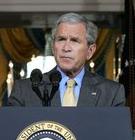It has become impossible to credibly argue that the Bush Administration's Middle East policies have advanced the national interests of the United States. After shifting enormous resources toward addressing the problems of the region following the events of Sept. 11, 2001, and after cautioning patience through the "birth pangs of democracy," the results have become clear. On every issue that the administration has prioritized -- promoting Arab-Israeli peace, liberating Lebanon from Syrian and Iranian influence, democratizing Egypt, stabilizing Iraq, and containing Iran -- America's foes have grown stronger and its allies have grown weaker. Even more troublingly, virtually all of these problems are worsening as the administration prepares to leave office. The problem is not merely one of happenstance or bad luck. Instead, it has to do with fundamental errors in analysis and planning, an intolerance of ambiguity, and a deeply flawed assessment of the capacities of American power. The Arab-Israeli conflict is a case in point. The Bush Administration has consistently hung back, confident that each side's urgency would create enough of an engine to move peace forward. In particular, the administration believed that Abbas's orientation to negotiate gave the U.S. great leverage over the Palestinian side, and that isolating Gaza would demonstrate to Palestinians that even the path taken by a weak Abbas would prove superior to that chosen by a defiant Hamas.
Bush Administration Middle East Policy: What Went Wrong?

